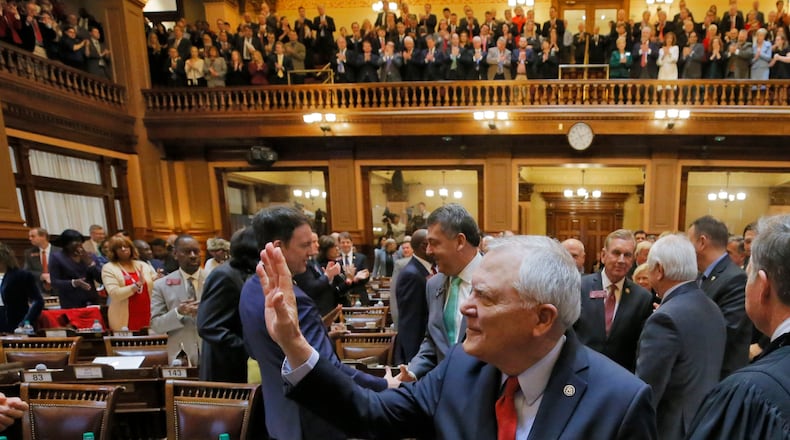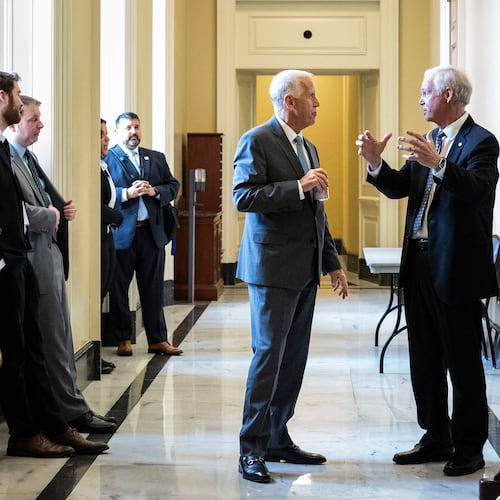Legislators passed scores of bills this year, as usual. But the 2018 session, which ended just after midnight Thursday, will be remembered best for three seemingly contradictory fiscal measures.
The state’s reserves remained on track to hit $2.5 billion by year’s end. K-12 public schools were fully funded for — depending on who you ask — either the first time since 2002 or the first time since the current formula was created in the 1980s. And yet, lawmakers also managed for the very first time to cut the state’s top income-tax rate.
It’s worth reviewing how all this was possible, because it shows how steady, conservative governance works.
When Gov. Nathan Deal took office seven years ago, the situation was bleak. Revenues were still recovering from a $2 billion hole the Great Recession blew in the state budget as businesses closed and people lost their jobs. Public schools were in the first of four straight years in which spending was cut by $1.1 billion, which was actually an improvement over the $1.4 billion cut they saw the year before that.
How did Deal and legislative leaders respond? They didn’t raise taxes. They managed the budget cuts as best they could. And they set about trying to improve the state’s economic climate to attract the jobs that would fill that budget hole.
Seven years later, Georgia has been named by one magazine as the No. 1 state in which to do business for five years running. Such name brands as Caterpillar, Mercedes-Benz, State Farm and more have made substantial investments in the state. Georgians went back to work, and the state’s coffers filled back up.
It didn’t happen all at once. Along the way, some impatient folks called for tax hikes to speed up the fiscal recovery. But such a move likely would have diminished the economic recovery Georgians continue to enjoy.
Seven years later, annual revenues have soared from their lowest point during the recession, to a projected $26 billion from $16.6 billion. Except for the 2015 boost in gas taxes to fuel more transportation infrastructure, to the tune of about $1 billion per year, the increase has come from economic growth.
Ultimately, growth is the best way to fill a budgetary hole.
But the fruits of that growth mustn’t be squandered. Deal set two clear priorities for the state’s surging revenues: reducing the austerity cuts for public schools, and building up the state’s reserves so that a future downturn might not be so crippling.
Seven years of keeping his eyes on that prize allowed the big breakthroughs this year: not only getting schools to full funding, but cutting the top income-tax rate to 5.75 percent next year and eventually to 5.5 percent. Those rate cuts may have been possible only because of the federal tax reform that broadened the state’s tax base, but they wouldn’t have been possible even then if not for deft fiscal management all along.
To achieve both of those in one year, plus the large reserve fund, is the culmination of all that work.
It’s not as if these were the only fiscal challenges along the way. Teacher pensions have required hundreds of millions of dollars in additional funding, as has the state’s Medicaid program, as well as its colleges and universities. None of that prevented these latest achievements, just delayed them.
So the other key here is patience. Growth takes time. Agencies and activists don’t always want to wait, for more spending or for tax cuts. Lawmakers face pressure to “do something” — now.
Resisting that pressure is the way to do something better, in the end.
About the Author
Keep Reading
The Latest
Featured



